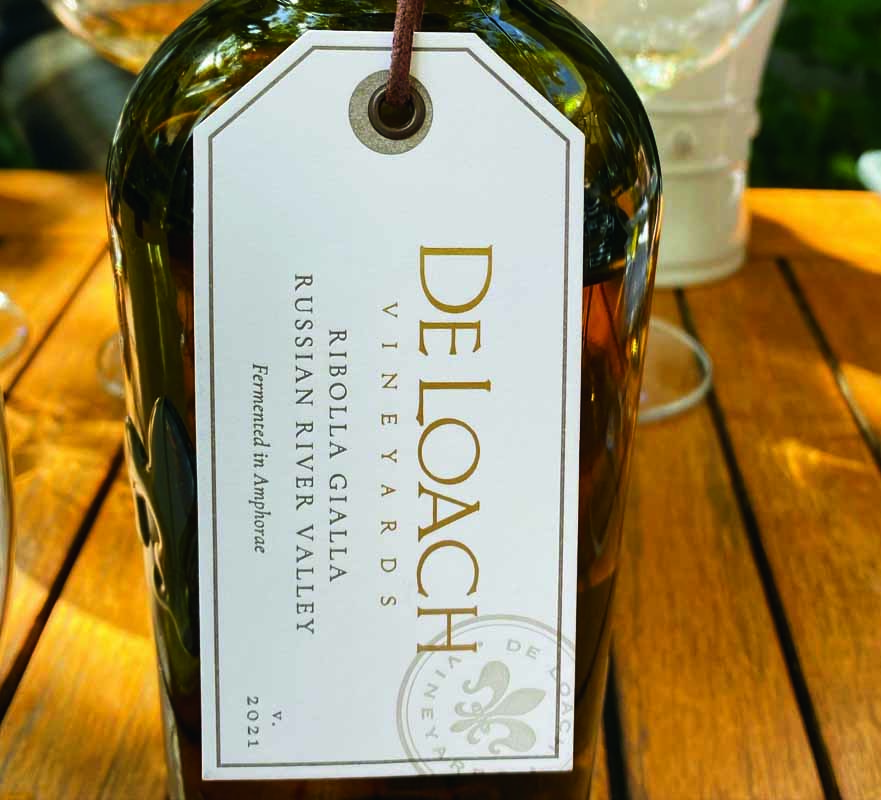After 20-plus years in the wine industry, I can admit how little I really knew about DeLoach Vineyards, in particular about what has been happening there over the past 10 to 15 years.
DeLoach Vineyards is a part of the Boisset winery family and has been since 2003. While I knew the winery was a part of Boisset’s portfolio of brands, I wasn’t really aware of what that meant for the brand, the quality of the wines, etc., as I hadn’t taken the time to sit down and taste the breadth of DeLoach’s menu of wines since the early 2000s.
Winemaking at DeLoach has been under the guiding hand of winemaker Brian Maloney, an avid believer in site expressive wines, the differences between Russian River Valley’s six “neighborhoods” and highlighting single vineyards, since 2007.
The wines being made are interesting, expressive and multi-dimensional. Also, most of the wines are made in small quantities from as few as 50 cases to a few hundred, in the case of their vineyard designate wines.
Here are a few more reasons to get excited about DeLoach Vineyards and DeLoach’s wines:
Certified
The winery is not just a certified sustainable and certified organic winery but is also one of just a handful of local wineries that are Demeter certified as a biodynamic vineyard and winery.
Iconic Vineyards
DeLoach makes over 20 vineyard designate wines from unique sites that include iconic vineyards such as Heintz, Stubbs, Van der Kamp and Saitone, with a large percentage of these wines coming from cool weather sites in the Green Valley, Petaluma Gap and Sonoma Coast AVAs. A couple of my personal favorites are the Hawk Hill Vineyard Chardonnay and Maboroshi Vineyard Pinot Noir.
Skin Contact
Among their offerings are a skin contact ribolla gialla and carignane that are aged in terracotta amphorae and that are phenomenal (these wines are made in very limited quantities, so they are generally sold out for part of each year).
Varietals Galore
They’ve got a diverse list of wines that includes not just pinot noir and chardonnay but pinot blanc, ribolla gialla, riesling, carignane and zinfandel.
Tasting Experience
The winery offers an appellation-focused tasting experience that draws from different Sonoma County AVAs. They also offer a self-guided tour that allows guests to explore the estate’s 20 acre organic and biodynamic farm, which includes a half-acre culinary garden, and grazing chickens, sheep and goats.
Earth-Friendly
They are actively pursuing more ways to reduce the winery’s environmental footprint, increase their biodynamic and regenerative agriculture practices, and to support their local community. One example is the winery’s “Vinthropic” line of wines that was created to help fight against hunger. One hundred percent of Vinthropic’s proceeds go to benefit Sonoma County’s Redwood Empire Food Bank.







Regenerative Biodynamic practices really are a step above organic. Farmers take a holistic view where one input feeds into another. Animals are mainly used for creating natural fertilizer and composts. 10% of all biodynamic farms are out aside for biodiversity purposes and the farmer collaborated with the wildlife rather than trying to eliminate it. I’m doing so, this higher animal, plant and insect diversity leads to a more resilient and healthy farm ecosystem. If you’re looking for farms and wineries that will be both regenerative and truly wildlife friendly, try Demeter Biodynamic.
Excuse the typos! Haha. No edit after option. 🙂